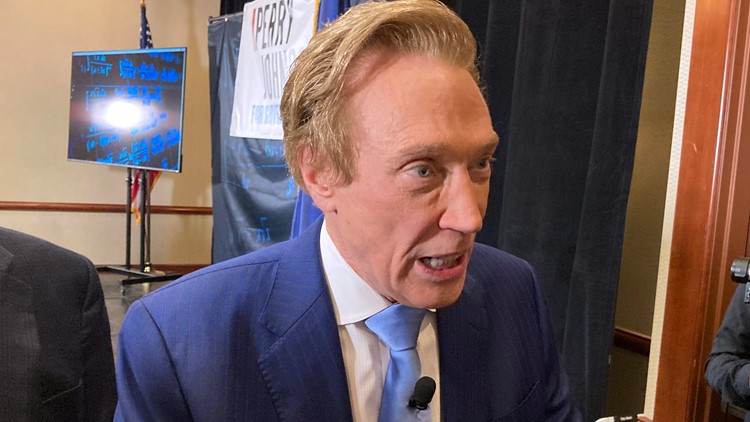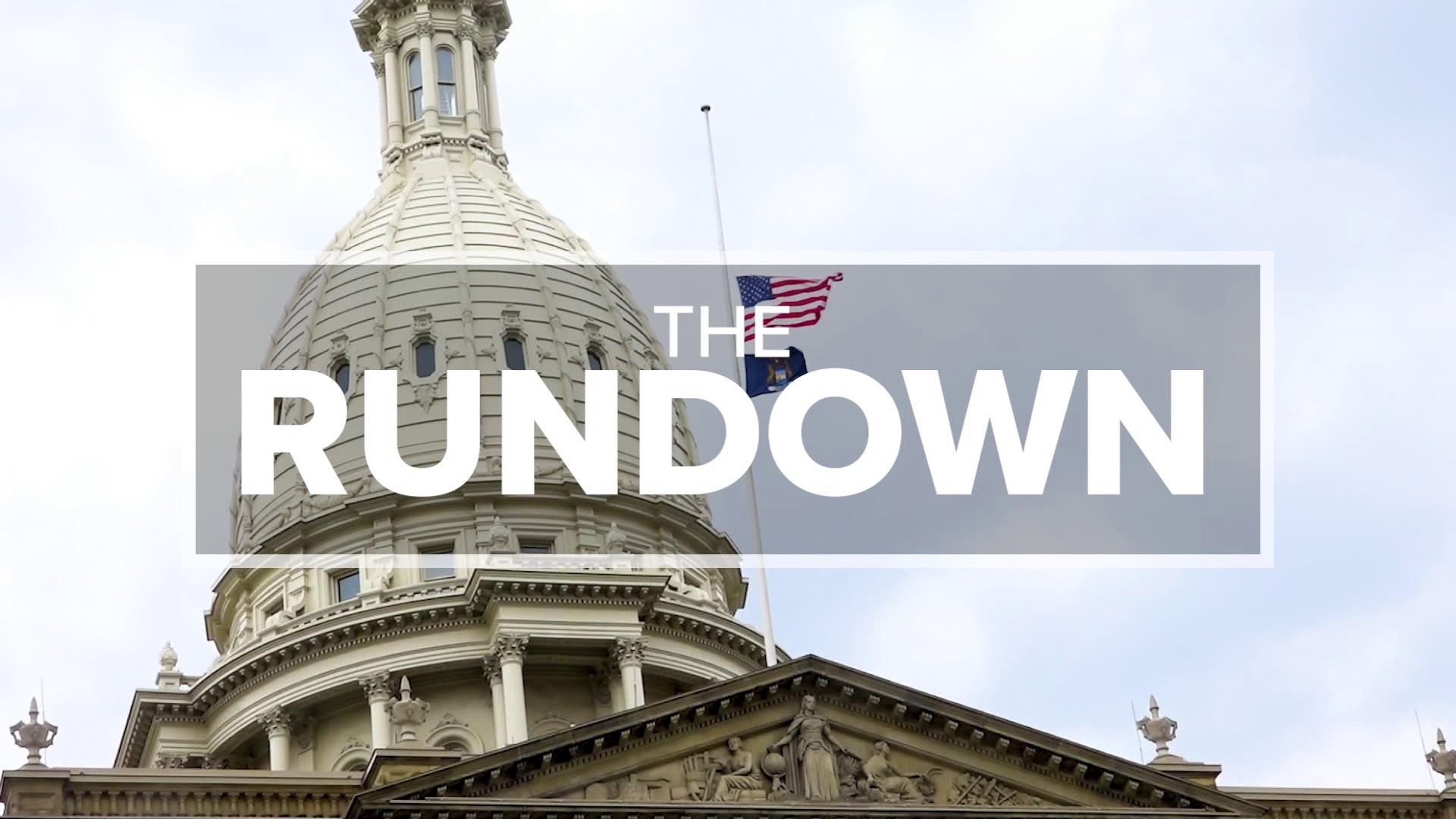MICHIGAN, USA — Two of the leading candidates for the GOP nomination for Michigan governor say they will ask the courts to intervene after they were found ineligible Thursday for the August primary, reshaping the race to challenge Democratic Gov. Gretchen Whitmer in the battleground state this fall.
Former Detroit Police Chief James Craig, who has led in most primary polls, and businessman Perry Johnson, along with three other lesser-known candidates, did not qualify for the ballot. The state elections bureau recommended they be disqualified, saying it found thousands of fraudulent signatures on petitions submitted by the candidates. The vote by the bipartisan Board of State Canvassers was 2-2, with two Democrats supporting the recommendation and two Republicans saying the candidates should get on the ballot.
A tie vote means the candidates lost.
Craig criticized the board's partisan decision as “a travesty” and said the bureau should have done a line-by-line verification of signatures he submitted, rather than rejecting entire pages based on its findings of fraud. He said the campaign will file an “immediate appeal.”
"We are confident that when the law is justly applied, our campaign will be on the ballot this August,” Craig said.
Johnson has already spent millions of his personal fortune on the contest. Jason Torchinsky, attorney for Johnson, said Thursday the state's process had “fatal flaws that didn't follow election law” and that he's confident Johnson will be on the ballot after the court review.
The other lesser-known GOP candidates — Donna Brandenburg, Michael Brown and Michael Markey — also were found ineligible after elections staff said they, too, didn’t turn in enough valid signatures. Brown withdrew from the race on Tuesday.
Democrats challenged the GOP candidates’ petitions, alleging mass forgery and other issues. Another Republican candidate, Tudor Dixon, had also contested Craig’s voter signatures as fake. But the bureau, which is part of Democratic Secretary of State Jocelyn Benson's department, said it discovered the fraud in its own review and didn't process the challenges filed by the Michigan Democratic Party and Dixon.
Candidates for governor were required to submit valid signatures from 15,000 registered voters to make the ballot. In a report released late Monday, bureau staff said multiple petition sheets for various candidates “displayed suspicious patterns indicative of fraud.” Some of the petitions for Craig’s campaign, for example, had signatures that all appeared to be written in the same handwriting.
Staff said that while it’s typical for petitions to include scattered instances of dubious signatures, “the Bureau is unaware of another election cycle” with such a “substantial volume” of fraudulent signatures involving multiple candidates. They identified 36 petition circulators — or people who gather signatures and are often paid per signature — who submitted petition sheets made up entirely of invalid signatures. They gathered signatures for 10 candidates, including some seeking judgeships, the bureau reported.
The Republicans who remain on the ballot are Dixon, who recently was endorsed by the family of former Trump administration Education Secretary Betsy DeVos, real estate agent Ryan Kelley, businessman Kevin Rinke, pastor Ralph Rebandt and chiropractor Garrett Soldano.
Addressing the board on Thursday, an attorney for Craig said he has signed affidavits from 15 registered voters whose signatures were determined to be forged, but who say they did sign the candidate's petition. Lawyer George Lewis also said the campaign acknowledges it appears there was fraud by the people who gathered signatures, but said Craig himself is a victim.
Democratic board member Mary Ellen Gurewitz pushed back on the description of Craig as a victim. She described his petitions as “obviously fraudulent" and said the law puts the burden on the candidate to submit valid signatures. Gurewitz also asked what the campaign did to check the validity of the signatures before turning them in. Lewis said he wasn't able to provide an answer.
Republican board member Tony Daunt said he rejects suggestions that state staff acted for partisan reasons, as some have alleged. But he said he couldn’t support kicking candidates off the ballot because the bureau staff didn’t have the resources to check every signature, instead reviewing a sample from the petitions.
The bureau said Craig submitted 10,192 valid signatures — well short of the 15,000 needed. It tossed 11,113 signatures, including 9,879 that were allegedly fraudulently collected by 18 paid circulators.
Staff said Johnson turned in 13,800 valid signatures. They threw out 9,393, including 6,983 that they said are fraudulent and were gathered by many of the same people who also forged signatures that Craig submitted.
The bureau said it doesn't believe specific campaigns or candidates were aware of what “fraudulent-petition circulators” were doing. Staff wrote that the bureau was working to refer the fraud to law enforcement for criminal investigation.
Republican Norman Shinkle, chairman of the Board of Canvassers, said the people who committed fraud “should go to prison” but that the courts should decide whether candidates make the ballot.
Michigan Republican Party Chairman Ron Weiser said in a statement after the vote that the candidates “should have their time in court.”
“This is about fighting against voter disenfranchisement and for choice at the ballot box,” Weiser said.
►Make it easy to keep up to date with more stories like this. Download the 13 ON YOUR SIDE app now.
Have a news tip? Email news@13onyourside.com, visit our Facebook page or Twitter. Subscribe to our YouTube channel.



